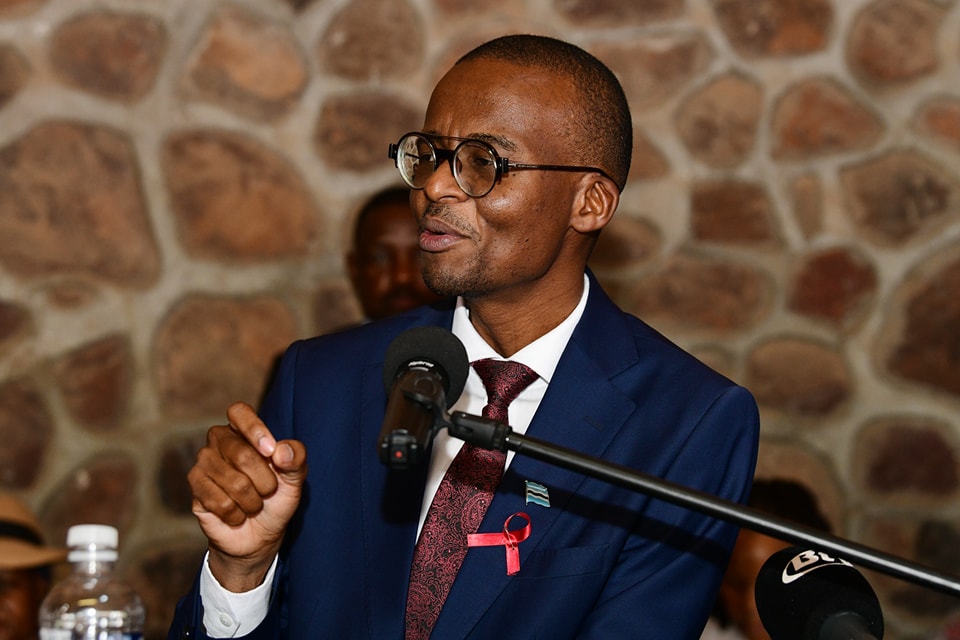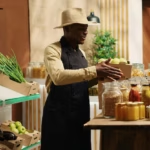In a riveting parliamentary session, Vice President and Finance Minister, Ndaba Gaolathe, delivered a searing critique of Botswana’s controversial vegetable import ban, calling it “very bad economics” during an impassioned exchange with Maun East representative Goretetse Kekgonegile. Gaolathe’s scathing assessment illuminated the policy’s unintended consequences, revealing how a measure meant to boost local agriculture has inadvertently intensified economic hardships and hindered broader developmental goals.
Escalating Food Prices and Economic Hardships
With keen insight, Gaolathe dissected the impact of the vegetable import ban, underscoring how it has worsened the financial strain on ordinary citizens, particularly the most vulnerable in society. The policy, designed to reduce reliance on imported goods and foster local production, has instead led to a spike in vegetable prices, making food more expensive across Botswana.
“What is happening now is that food and vegetables have become more expensive in Botswana,” Gaolathe explained. “Low-income groups—people who are struggling—spend a greater percentage of their income on food. The people that are hurt most are actually low-income groups.” This revelation struck a chord with many, as financially strained households are now being forced to allocate a larger portion of their limited income to basic sustenance.
A Short-Sighted Solution to Long-Term Problems
While acknowledging that local vegetable farmers have benefitted from the ban, Gaolathe argued that this approach is ultimately unsustainable. Rather than relying on protectionist measures like the import ban, the Vice President called for a more balanced, forward-thinking strategy to support the agricultural sector.
“Yes, vegetable farmers are benefiting, and the industry is growing. But the way to grow it is not necessarily to ban imports,” he asserted. “We need to subsidize them directly with proper, targeted funding. We also need to invest in research and development and provide mentorship to farmers to build their capacity.” By focusing on targeted investments, Gaolathe emphasized, Botswana could ensure long-term growth in the agricultural sector, with sustainable benefits for both farmers and consumers.
A Call for Export-Oriented Development
Gaolathe’s critique extended beyond local agriculture, advocating for a broader shift toward export-oriented industries. He argued that Botswana’s small domestic market cannot create significant employment or economic opportunities through protectionist policies alone.
“Botswana is a small country. The way this country is going to create jobs for its people is to create industries that export to the rest of Africa and the globe,” he declared. “The idea of banning imports is shortsighted and counterproductive.” Gaolathe’s vision for economic development emphasized opening markets beyond Botswana’s borders, promoting industries that could drive job creation and foster economic growth across the African continent and globally.
The Political Divide: BCP and the Import Ban
In a calculated political move, Gaolathe also addressed the growing divide within the political establishment over the vegetable import ban, distinguishing his party’s position from that of the Botswana Congress Party (BCP). He refuted suggestions that the BCP’s “Bring Back Our Jobs” campaign advocated for restrictive policies like the import ban.
“I don’t believe that the BCP’s idea of bringing back jobs necessarily means you must support the ban,” Gaolathe affirmed, drawing a clear line between his party’s commitment to job creation and the BCP’s stance on the issue.
The Future of Botswana’s Agriculture
As the debate over the vegetable import ban rages on, Gaolathe’s powerful critique has heightened scrutiny of the policy, which was intended to strengthen domestic agriculture but has instead exacerbated food costs and undermined food security. Critics argue that while the ban may offer short-term benefits for some farmers, it ultimately fails to address the fundamental reforms needed to make Botswana’s agricultural sector globally competitive.
In the face of rising food prices and growing concerns about poverty reduction and food security, Gaolathe’s unflinching assessment has added weight to calls for a more comprehensive approach to agricultural development—one that balances local support with broader economic strategies. As Botswana seeks a sustainable path toward growth, the Vice President’s critique underscores the need for a policy shift that considers long-term benefits over short-term fixes.
The debate over the vegetable import ban is set to continue as Botswana grapples with the challenges of food security, poverty reduction, and sustainable economic growth. With Gaolathe’s incisive critique, the conversation has been pushed into new, more complex territory, reflecting the growing need for a more holistic and forward-thinking approach to national development.










